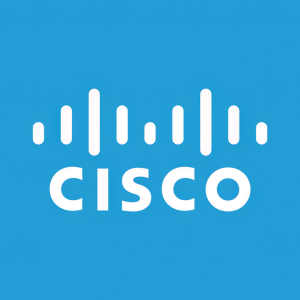Cisco Networking Academy Honors International Day of the World’s Indigenous People
Rhea-AI Summary
Cisco Networking Academy honors the International Day of the World's Indigenous People on August 9, recognizing the challenges faced by nearly half a billion Indigenous Peoples worldwide. The academy aims to empower learners in 190 countries through education and digital skills training, bridging digital divides for underrepresented communities.
The PR highlights three inspiring stories:
- Tallara, an Indigenous Australian participating in a cybersecurity program and helping remote communities get online
- Julio Lezcano, a Panamanian instructor launching community networks in Emberá indigenous communities
- Dr. Gabriella Arellano, teaching at Sitting Bull Community College and part of a consortium offering cybersecurity courses in rural tribal colleges
These examples demonstrate Cisco Networking Academy's commitment to powering inclusive futures for all, including Indigenous Peoples, through education and digital skills development.
Positive
- None.
Negative
- None.
News Market Reaction
On the day this news was published, CSCO gained 1.05%, reflecting a mild positive market reaction.
Data tracked by StockTitan Argus on the day of publication.
NORTHAMPTON, MA / ACCESSWIRE / August 19, 2024 / Cisco Systems Inc.
By Laura Quintana
There are nearly half a billion Indigenous Peoples in 90 countries around the world. Indigenous Peoples are among the most disadvantaged and vulnerable people on the planet. The international community recognizes that special measures are required to protect Indigenous rights and to maintain their distinct cultures and ways of life.[i]
To raise awareness of the issues Indigenous Peoples face, the UN has declared August 9 International Day of the World's Indigenous Peoples.
Education is an equalizer
At Cisco Networking Academy, we are proud to deliver curriculum and experiences that empower learners in 190 countries for a new education era.[ii] We know education is an equalizer. We work to elevate people of all backgrounds, and to bridge digital divides for underrepresented communities, opening them up to a world of opportunities to participate and contribute to evolving economies.
I'd like to take this moment to share some inspiring stories of Indigenous individual and community elevation and empowerment through our Cisco Networking Academy community.
Grasping opportunity with both hands
Tallara[iii] (Tully) was born and raised in a small town called Yass, around 280km southwest of Sydney, Australia.
"Being from the country I've only worked in retail jobs," she says. "At high school I got into hospitality just because that's easy work in Yass. There are lots of restaurants and things… that's why I went into that."
Tully's High school teacher, Trish, had moved on to a role at Kirra Services, a Supply Nation Certified Indigenous IT business that aims to increase opportunities for Indigenous participation in the IT industry.
Trish recognized Tully's desire to help people, and suggested she join the Junior Cybersecurity Analyst[iv] pathway program Kirra was facilitating.
Tully jumped at the opportunity
Since starting Tully has spent time helping remote Indigenous communities get online by traveling to an indigenous community at Lake Cargelligo, nearly 600km west of Sydney.
"I have Indigenous heritage on my dad's side. It's been a big thing. And even just living in Yass you see the community having struggles with these sort of things," she says. "So it's been a big thing to be able to come out here, and obviously I can relate a little bit with them out here as well."
"I think it would be obviously my goal to do this kind of community work," says Tully of her time at Lake Cargelligo. "It's so rewarding just to be with people-I love being with people-it's been really awesome."
We are encouraged to hear that Tully is also now participating in a three-year project management traineeship. It's enthusiastic and well-trained young people like Tully who will help bridge the digital divide faced by remote rural and Indigenous communities in Australia, bringing connectivity and opportunities they may have never imagined existed.
Transforming lives and preserving cultures
About halfway around the world in Panama, a Cisco Networking Instructor Julio Lezcano[v] has devoted his career to getting Panamanians online-in the 1990s he was instrumental in getting Panama connected to the internet.
But despite Panama's introduction to the internet in 1994 and the explosion in the use of mobile devices, the last World Bank data for Panama shows only 68 percent of the population[vi] using the internet.
In part, this is because traditional internet providers can't justify the costs of getting internet connections to remote communities.
Julio, professor of Computer Networks at the Technological University of Panama (UTP), recognized that Indigenous communities in the Chagres River Basin were close enough to Panama City to be tourist destinations, yet remote enough that they didn't have internet connectivity. He also recognized that a different internet service solution was ideal for these communities.
At the first Latin American Summit of Community Networks,[vii] held in September 2018, a definition of this different model was developed: "Community networks are networks owned and collectively managed by the community, non-profit and for community purposes; They are constituted as collectives, Indigenous communities or nonprofit civil society organizations, which exercise their right to communication, under principles of democratic participation of their members, equity, gender equality, diversity and plurality."
On October 21, 2023, the Panama Chapter of Internet Sociedad (ISOC Panama), with the support of UTP launched the community networks of Tusipono and Parará Puru, Emberá indigenous communities.
"The objective of the community networks project in the Emberá Indigenous communities of Panama is that the women and men of Tusipono and Parará Puru will build a self-managed wireless community network, whose main objective is to preserve and promote the Emberá culture through the sustainability of artisans and entrepreneurs of ethnic tourism, because these activities are the main sources of income for the community," says Julio.
Thirty years after succeeding in getting Panama connected to the internet, Julio continues to engage underrepresented communities to create personal empowerment, workforce opportunity, and stronger communities.
Indigenous education for greater opportunity
Dr Gabriella Arellano[viii] pursued her lifelong ambition to get into education, enrolling to study for her master's degree at the University of Mary in Bismarck, North Dakota. "I was accepted into a few graduate schools in California," she says. "But I wanted to go to school here so I could meet people."
After graduating she was offered a teaching role at Standing Rock Reservation. "I had never been to Standing Rock. I learned a lot about the community and the culture," she says.
Gabriella went on to get certified as a college-level instructor, and qualified as a Cisco Networking Academy instructor as well. This led to a job at Sitting Bull Community College, a public tribal land-grant college founded by the Standing Rock Sioux tribe of the Standing Rock Indian Reservation.
With a small student body of only around 300, the college faces challenges offering a broad range of courses. For this reason Sitting Bull College partnered with Turtle Mountain Community College and Stone Child Community College to develop a consortium to offer cybersecurity courses in rural tribal colleges in two different states. It is a shared-resources model that helps provide students a broader range of opportunities.
"It's really important for people-especially people who care about education-to know that there are rural community strategies to increase the access to opportunities for students. Education is evolving and there is always more to do. It has been inspiring to work with Cisco's technical leaders and business development team who have gone above and beyond to help us provide the best education to our students. It has impacted and changed many lives."
Powering an inclusive future for all
The United Nations Declaration of the Rights of Indigenous Peoples[ix] stresses the importance of education for Indigenous empowerment. These diverse stories exemplify Cisco Networking Academy's potential to power inclusive futures for all, through learning and digital skills, including for Indigenous Peoples.
Learn more about Cisco Networking Academy for Educators
Sources
[i] https://www.un.org/en/observances/indigenous-day
[iii] https://www.netacad.com/careers/success-stories/opportunity-knocks-for-tallara-in-regional-australia
[v] https://www.netacad.com/careers/success-stories/quest-to-connect-panama
[vi] https://data.worldbank.org/indicator/IT.NET.USER.ZS?locations=PA
[vii] https://www.internetsociety.org/resources/doc/2018/community-networks-in-latin-america/
[viii] https://www.netacad.com/careers/success-stories/empowering-students-at-standing-rock-reservation
[ix] https://www.un.org/esa/socdev/unpfii/documents/DRIPS_en.pdf
View original content here.

View additional multimedia and more ESG storytelling from Cisco Systems Inc. on 3blmedia.com.
Contact Info:
Spokesperson: Cisco Systems Inc.
Website: https://www.3blmedia.com/profiles/cisco-systems-inc
Email: info@3blmedia.com
SOURCE: Cisco Systems Inc.
View the original press release on accesswire.com







